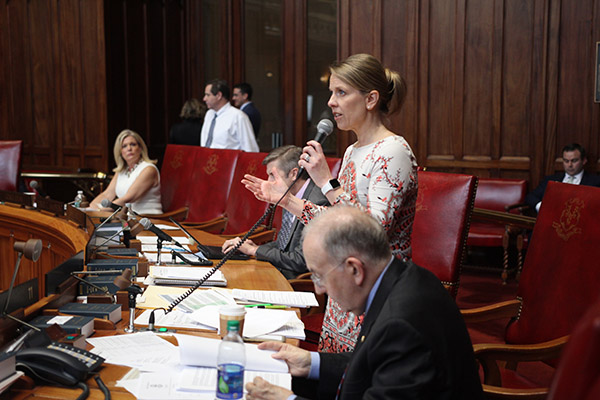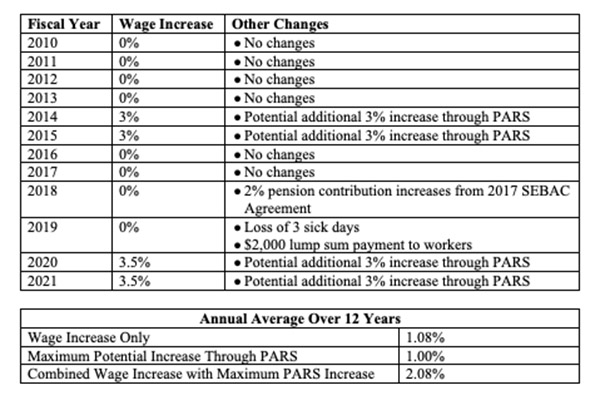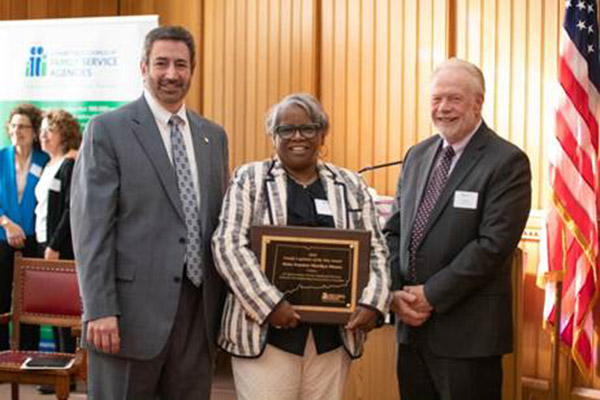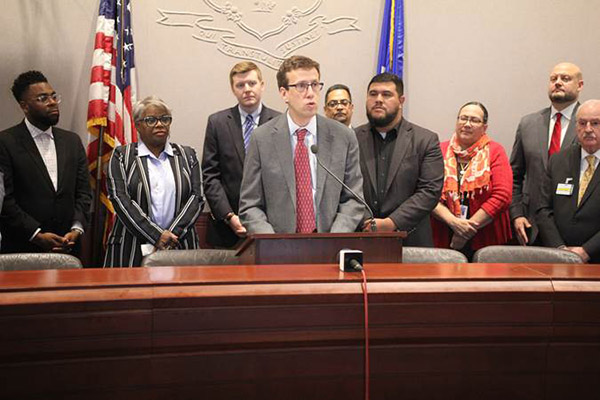Flexer Leads Bipartisan Senate Passage of Four Good Government Bills
HARTFORD, CT – Today, State Senator Mae Flexer (D-Danielson) lead the Senate in bipartisan passage of four good government bills which originated in the Government Administration and Elections Committee. Senator Flexer is Senate chair of the committee.
“I am pleased that these bills received bipartisan support and were passed by the Senate,” said Senator Flexer. “Each of these bills protects and promotes good government and the rights of all residents of Connecticut. These pieces of legislation will ensure Connecticut remains a leader on gender equality, allow for victims of domestic violence to maintain their privacy, enhance consumer privacy, and help small businesses and non-profits promptly receive the pay they deserve. Working together with my Democratic and Republican colleagues we were able to move legislation forward that reflect the principles of fairness and equality that make our communities and state better off.”
Senate Bill 1104, “An Act Concerning General Neutrality in the State Constitution,” would establish a commission to review the text of the state Constitution and potentially recommend the removal of all gendered language. The commission would be charged to submit a report before January 1, 2020 with its findings. Before reaching the Senate, this legislation passed the Government Administration and Elections Committee by a 12-3 vote. Today, the Senate passed the bill 31-1.
Senate Bill 1105, “An Act Concerning the Confidentiality of Law Enforcement Records Concerning Victims of Sexual Assault and Family Violence,” would allow the nondisclosure of victims of certain crimes in law enforcement records. Specifically, victims of family violence, sexual assault and voyeurism would not be named in publicly disclosed police reports upon the legislation’s passing. This bill passed the Government Administration and Elections Committee by a unanimous 16-0 vote. Today, the Senate passed the bill unanimously 33-0.
Senate Bill 1108, “An Act Establishing a Task Force Concerning Consumer Privacy,” would create a task force to study consumer privacy. The task force would study requiring businesses to disclose the potential use of any personal information and giving consumers the right to discover personal information held by that business. This bill was also passed by a unanimous 16-0 vote in the Government Administration and Elections Committee. Today, the Senate passed the bill unanimously 33-0.
Senate Bill 683, “An Act Concerning a Penalty for Late Payments of State Contractors by Third-Party Entities,” would create a monetary penalty for state contractors that fail to make timely payments to third-party entities. The bill would require that a contractor pay a penalty to a small business or non-profit if the contractor fails to pay them within forty-five days of the contractor’s receipt of a properly completed claim or receipt of goods and services. The penalty would equal one-half percent of the total value of the late payment. The bill was passed by a unanimous 16-0 vote. Today, the Senate passed the bill unanimously 33-0.



